Does Stress Cause Acne?
Uncover surprising links between emotional tension and breakouts for clearer skin today.
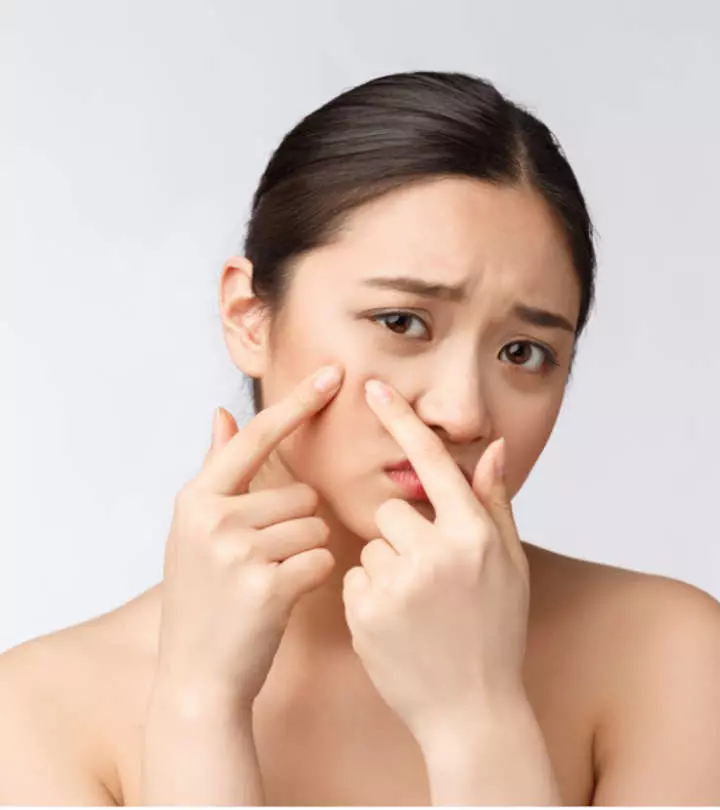
Image: Shutterstock
We are all aware that stress can lead to serious health problems. But, can stress cause acne? After all, stress has been linked to adult acne in recent years.
While stress does not directly cause acne, it can worsen the problem. What causes this to happen? What can you do to avoid stress acne and improve the health of your skin? In this article, we have addressed all these concerns. Keep reading to learn more!
In This Article
How Do Stress Hormones Affect Acne?
Stress can trigger acne. Their severity is positively correlated with the amount of stress an individual was under at any given point in time (1). This occurs due to increased sebum production. Sebum is an oily substance that may clog skin pores along with bacteria and dead skin cells. This eventually can lead to acne.
Sebum is released when the cell’s stress receptors are activated. This is triggered by various stress hormones, including androgens and cortisol.
While stress can definitely trigger one’s acne-prone skin, it is typically not the main cause. Keep reading to know more about the causes and triggers of acne.
Stress does not cause pimples. It simply triggers them. The main causes of acne are as follows:
- Bacteria
- Dead skin cells
- The overproduction of sebum (oil)
Besides stress, the following factors can also trigger breakouts.
1. Different Medications
This is especially true for drugs that contain lithium, testosterone, and corticosteroids (2). These may disrupt the body’s production of hormones and eventually lead to excess sebum production. If you experience acne after taking these medications, consult a doctor for other alternatives.
2. Hormonal Changes
The body undergoes several hormonal changes during puberty and between 50 to 60 years of age. The increase of androgen is one such change. This hormone causes the enlargement of sebaceous glands and may eventually increase sebum production (3). This, in turn, may result in acne.
3. Diet
Preliminary studies suggest that the overconsumption of carbohydrate-rich foods such as bread, rice, and bagels may result in the overproduction of sebum and cause acne (4). However, more research is warranted in this regard.
These are the other common factors that trigger acne. Let us now understand how stress acne differs from other types of breakouts.
What Is The Difference Between Stress Acne And Other Breakouts?
1. Keep Track Of The Timing
Tracking your acne is especially useful if you do not experience severe acne throughout the year. If you notice your acne repeatedly coinciding with extremely stressful events, like your periods or examinations, then it is most likely induced by stress.
2. Notice The Location
Pimples caused by stress typically exist on the oilier parts of one’s skin. This includes the T-zone (forehead and nose) as well as the area around the lips and chin.
3. Observe The Frequency Of The Breakout On A Particular Location
Unlike other types of acne that appear all over the skin, stress breakouts are generally designated to only certain areas of the face. Acne popping up in the same place over and over again can be an indication of stress breakouts.
4. Notice What Accompanies It
While acne encompasses various skin issues (pimples, blackheads, whiteheads, etc.), regular breakouts typically involve just one or two symptoms. Pimples caused by stress, on the other hand, are generally accompanied by coarse and oily skin, blackheads, and whiteheads. Such pimples are also defined by their red and inflamed appearance.
While differentiating between acne formed due to stress and regular breakouts is easy, getting rid of stress pimples is hard. Or is it? We have listed in the next section the different ways you can get rid of stress pimples.
How Do You Get Rid Of Stress Pimples?
There are several treatment options available to help you get rid of stress pimples. The top ones are as follows:
1. Over-The-Counter Medication
Topical products containing benzoyl peroxide, salicylic acid, and sulfur are considered the most useful medications for acne (5).
That said, make sure to conduct a patch test or visit your local dermatologist before using these medications.
2. Cleansers
While you cannot use cleansers to get rid of pimples, the wrong ones can aggravate stress breakouts. Hence, consider using non-alcoholic cleansers. They are quite gentle on the skin and are less likely to cause any reaction (6).
3. Vitamin-Based Creams
Products containing active vitamins, like retinol, may help reduce acne and acne spots caused by stress (6). However, more research needs to be conducted on this subject matter.
4. Warm Compress
Avoid popping your pimples, as this may otherwise spread the infection and cause more breakouts. You can instead try applying a warm compress to the affected area. The compress can soften the pimple and allow it to erupt naturally.
Prevention is always better than cure. The next section discusses how you can prevent stress acne in the first place.
How Do You Prevent Stress Acne?
1. Exercise Regularly
Exercise lowers stress levels and helps improve one’s blood circulation. This may reduce acne flare-ups in the future.
2. Regularize Your Sleep Pattern
The amount of sleep you get plays an important role in treating acne outbreaks. It is during this time that your skin repairs itself. Also, inadequate sleep may lead to higher stress levels and mood changes (7). Hence, get at least seven hours of uninterrupted sleep each night.
3. Cleanse Your Face Often
Wash and cleanse your face at least twice a day – once in the morning and once at night. This practice can remove the dirt, dead skin cells, and excess sebum present in your pores and help prevent acne. Use a gentle non-alcoholic face wash and cleanser for best results.
4. Improve Your Diet
Certain types of food can trigger acne. Hence, opt for a well-rounded diet that does not have excess of carbohydrates or fats. You can visit a dietician to create a custom diet chart most suitable for your skin.
While stress may not cause acne, it may trigger or aggravate existing acne. Hormonal changes, medications, poor diet, or overproduction of sebum can cause acne. To identify whether stress is behind your acne, keep track of the frequency and location of the pimples. Once you have identified stress as the cause, you can opt for OTC medications or cleansers to reduce stress acne. Additionally, a proper skin care routine, healthy diet, and regular sleep can go a long way in preventing future stress acne.
Frequently Asked Questions
What do stress pimples look like?
If you develop a cluster of pimples on your forehead, cheeks, and face along with a greasy forehead after a stressful event, chances are you have developed stress pimples.
What does hormonal acne look like?
Hormonal acne is characterized by painful and tender cysts, blackheads, or whiteheads that develop on the lower jaw, chest, and shoulders due to hormonal fluctuations.
Can drinking water help with acne?
Yes, water washes out the toxins and keeps the skin hydrated which may help manage acne.
Key Takeaways
- While stress does not directly cause acne, it can trigger and exacerbate the condition.
- Over-the-counter medication, non-alcoholic cleansers, vitamin-based creams, and warm compresses can help you get rid of stress pimples.
- Exercise consistently, sleep soundly, cleanse your face frequently, and improve your diet to prevent stress acne.
References
Articles on StyleCraze are backed by verified information from peer-reviewed and academic research papers, reputed organizations, research institutions, and medical associations to ensure accuracy and relevance. Read our editorial policy to learn more.
- The response of skin disease to stress: changes in the severity of acne vulgaris as affected by examination stress
https://pubmed.ncbi.nlm.nih.gov/12873885/ - Acne
https://www.ncbi.nlm.nih.gov/labs/pmc/articles/PMC1633755/ - Hormonal Treatment of Acne in Women
https://www.ncbi.nlm.nih.gov/labs/pmc/articles/PMC2923944/ - The relationship of diet and acne
https://www.ncbi.nlm.nih.gov/labs/pmc/articles/PMC2836431/ - A review of diagnosis and treatment of acne in adult female patient
https://www.ncbi.nlm.nih.gov/labs/pmc/articles/PMC5986265/ - Over-the-counter Acne Treatments: A Review
https://www.ncbi.nlm.nih.gov/pmc/articles/PMC3366450/ - Stress and autonomic response to sleep deprivation in medical residents: A comparative cross-sectional study
https://www.ncbi.nlm.nih.gov/labs/pmc/articles/PMC6448892/
Read full bio of Dr. Vandana Verma
Read full bio of Arshiya Syeda






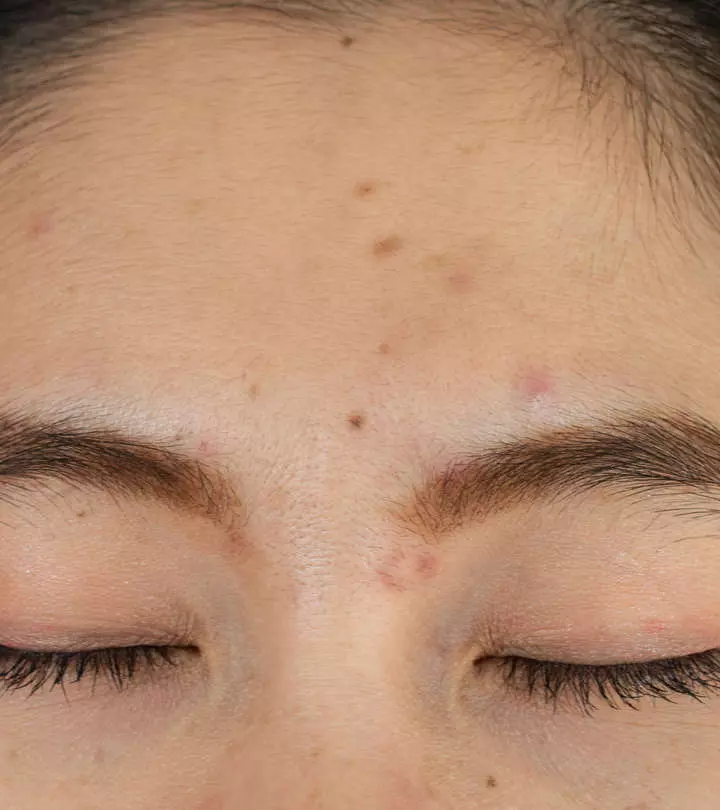
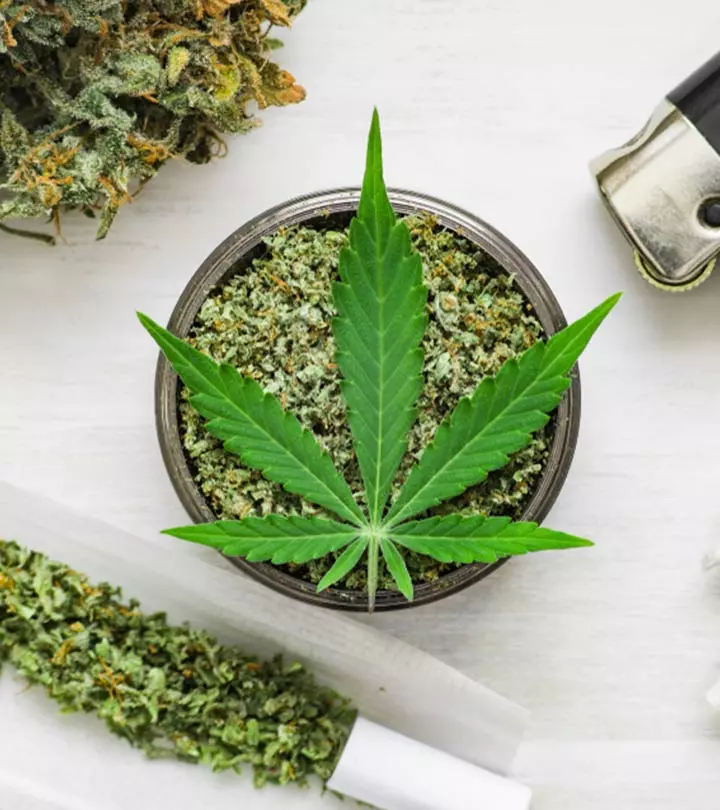
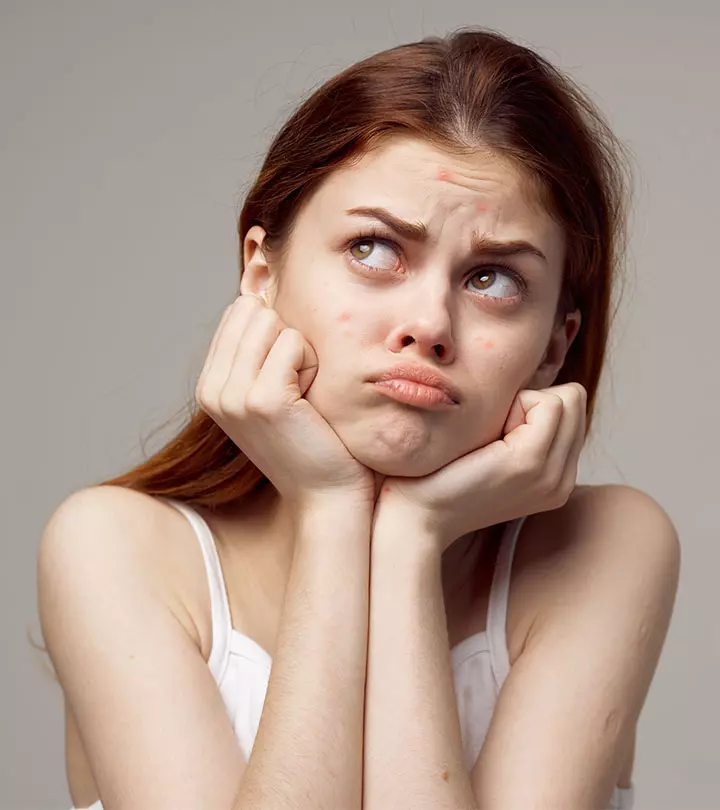
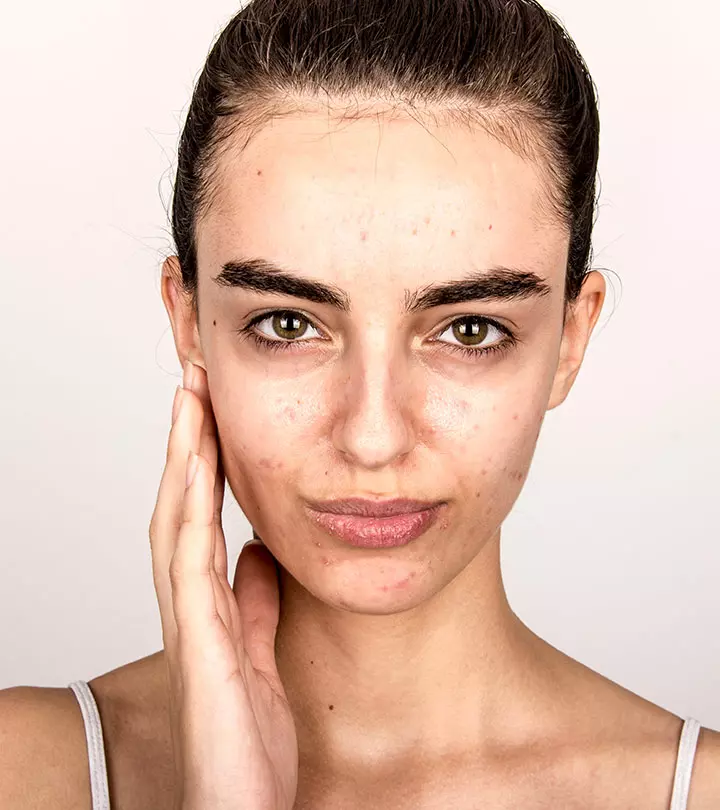
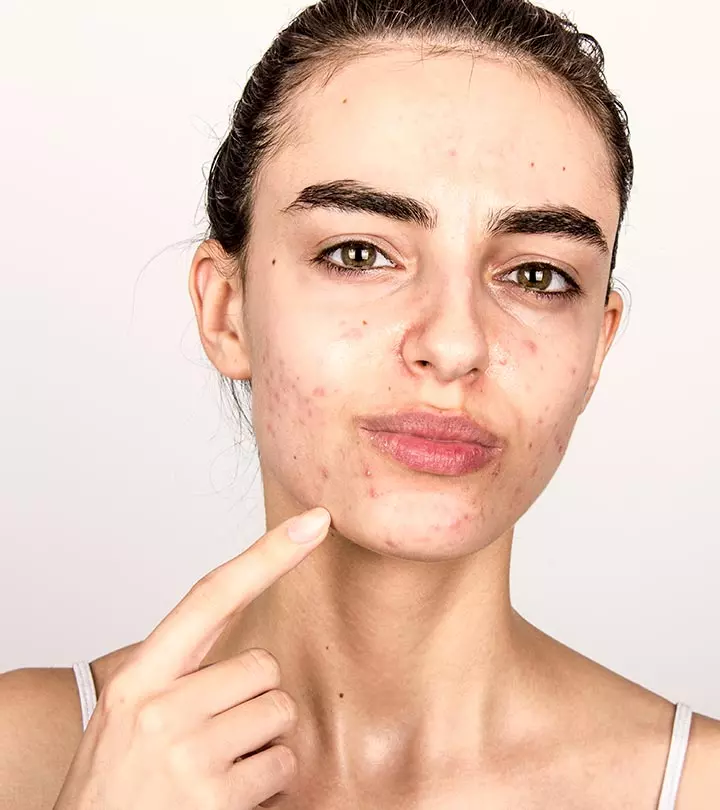
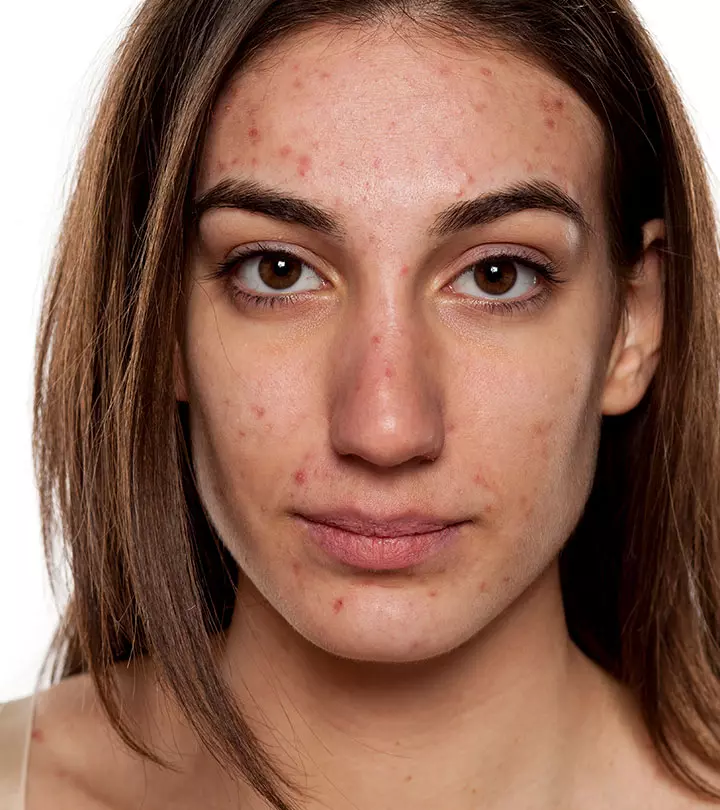
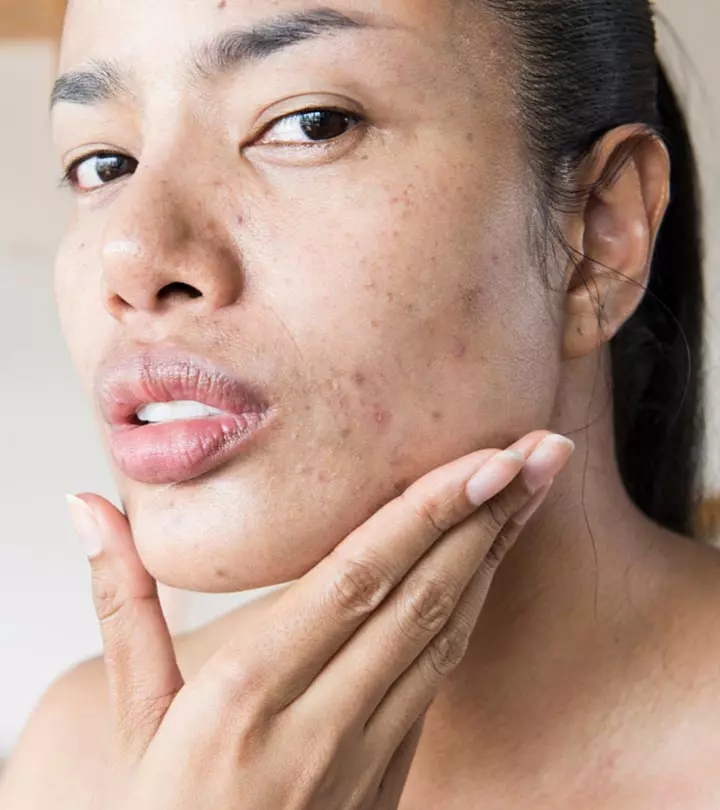
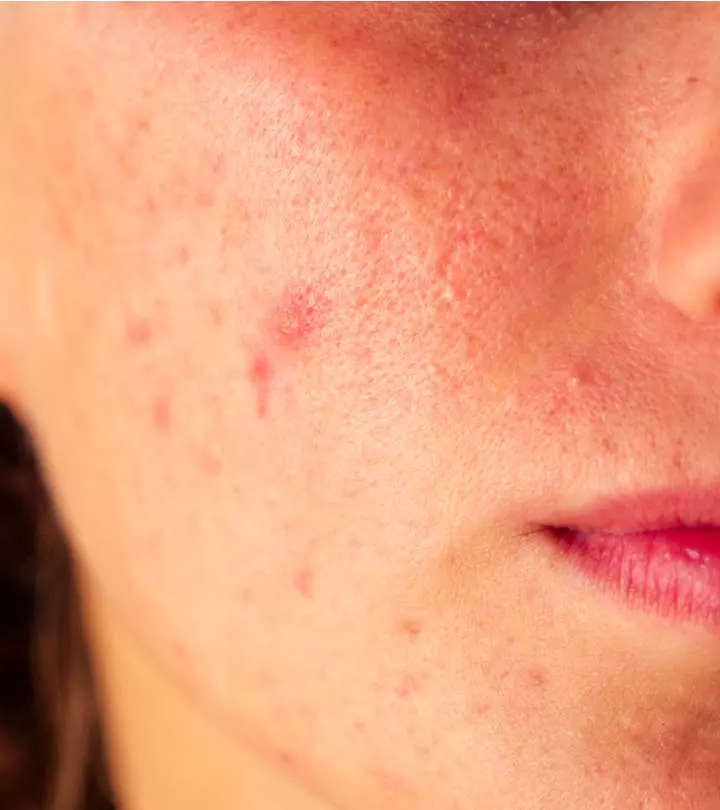
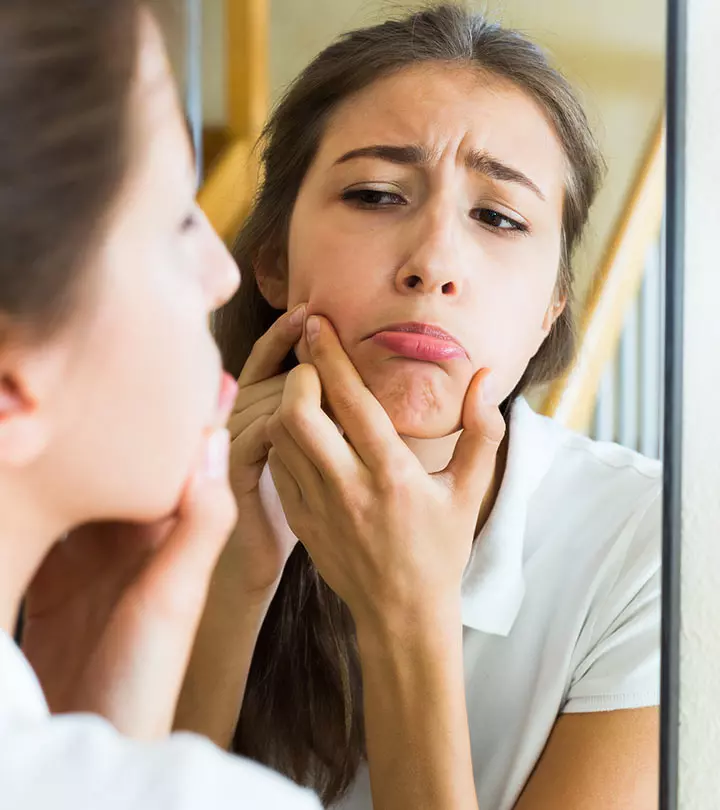
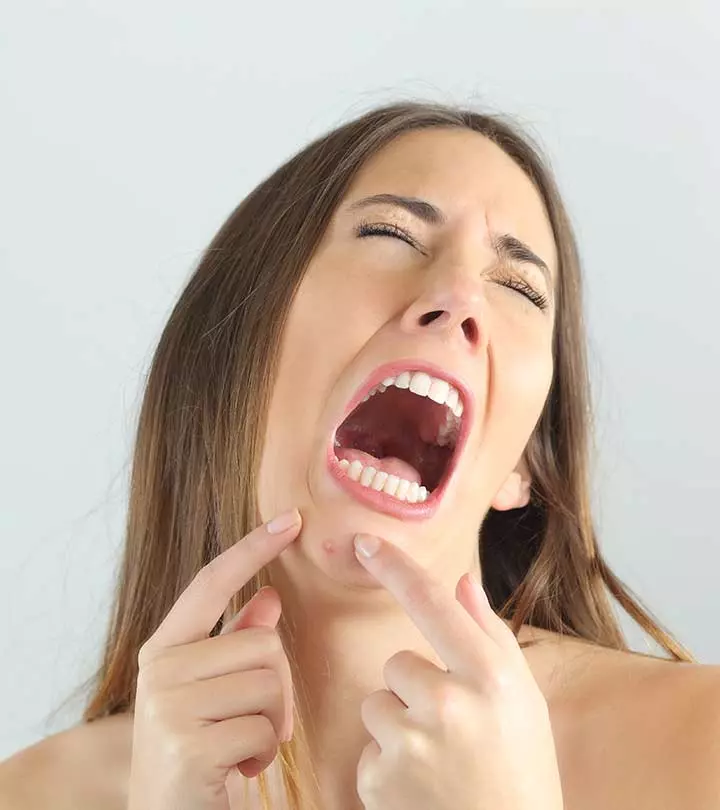





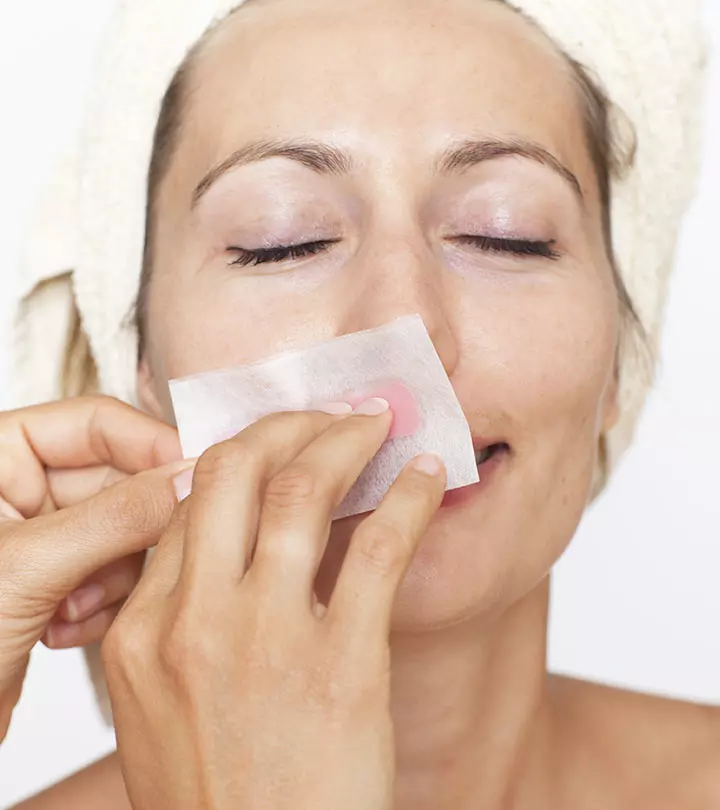






Community Experiences
Join the conversation and become a part of our empowering community! Share your stories, experiences, and insights to connect with other beauty, lifestyle, and health enthusiasts.